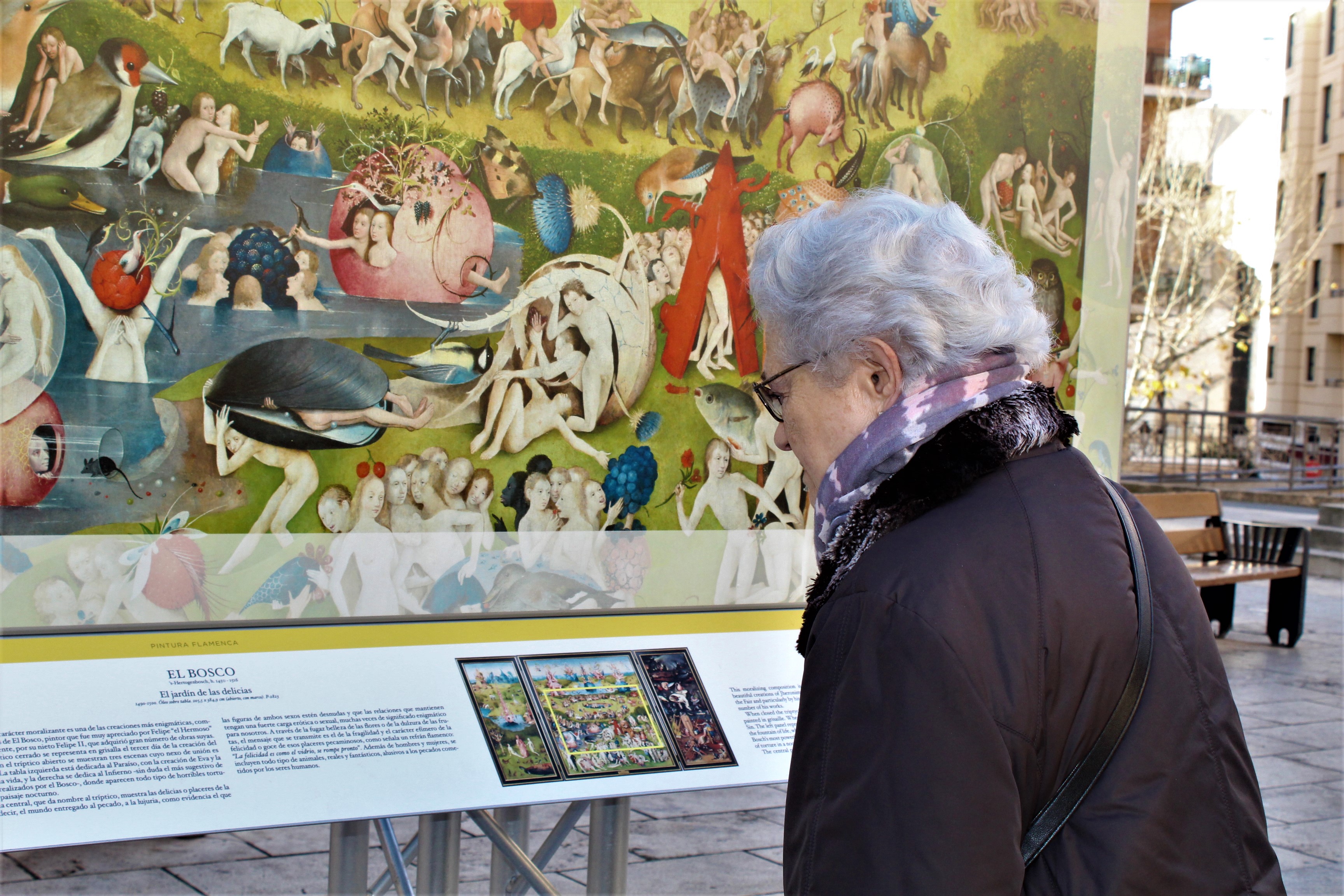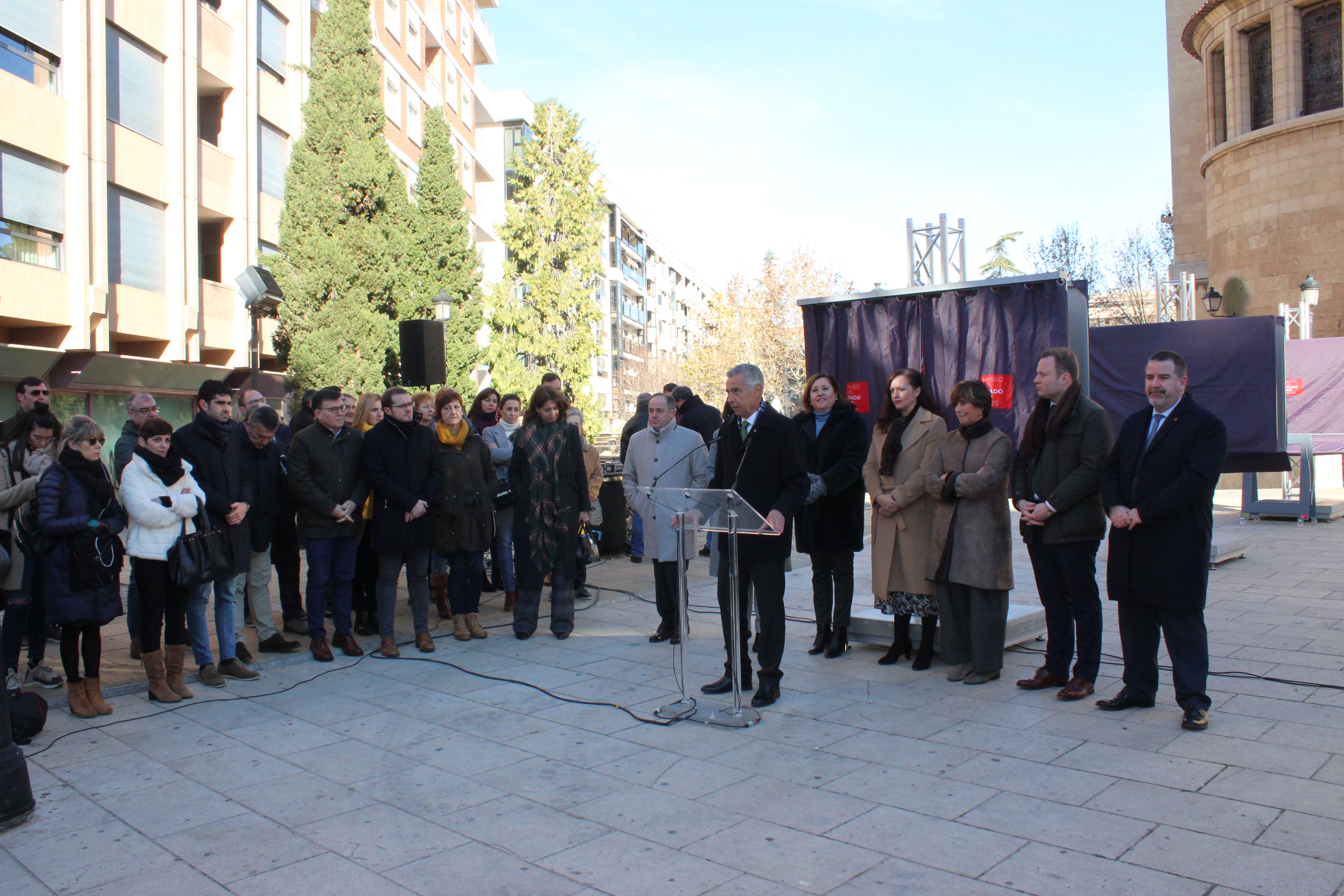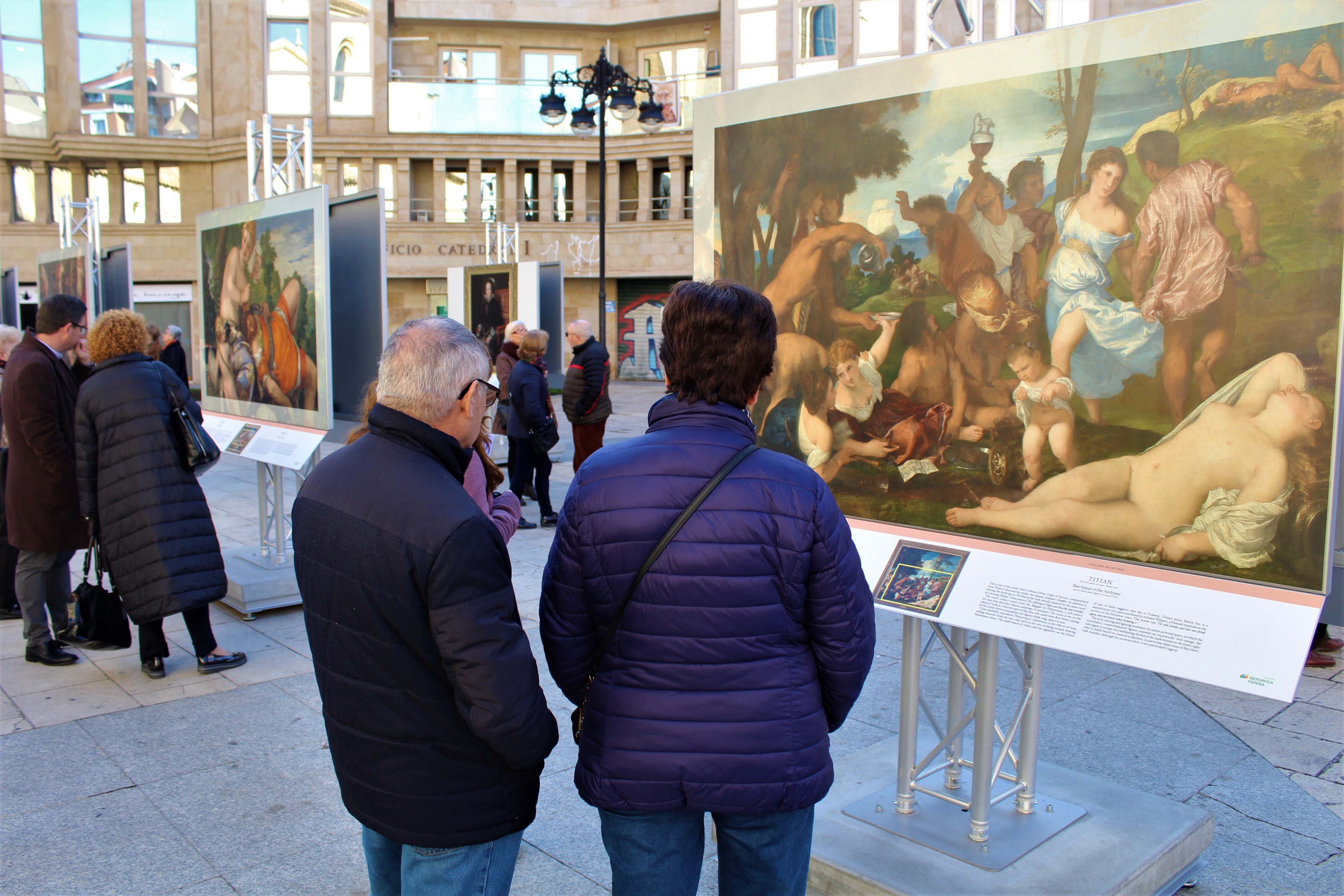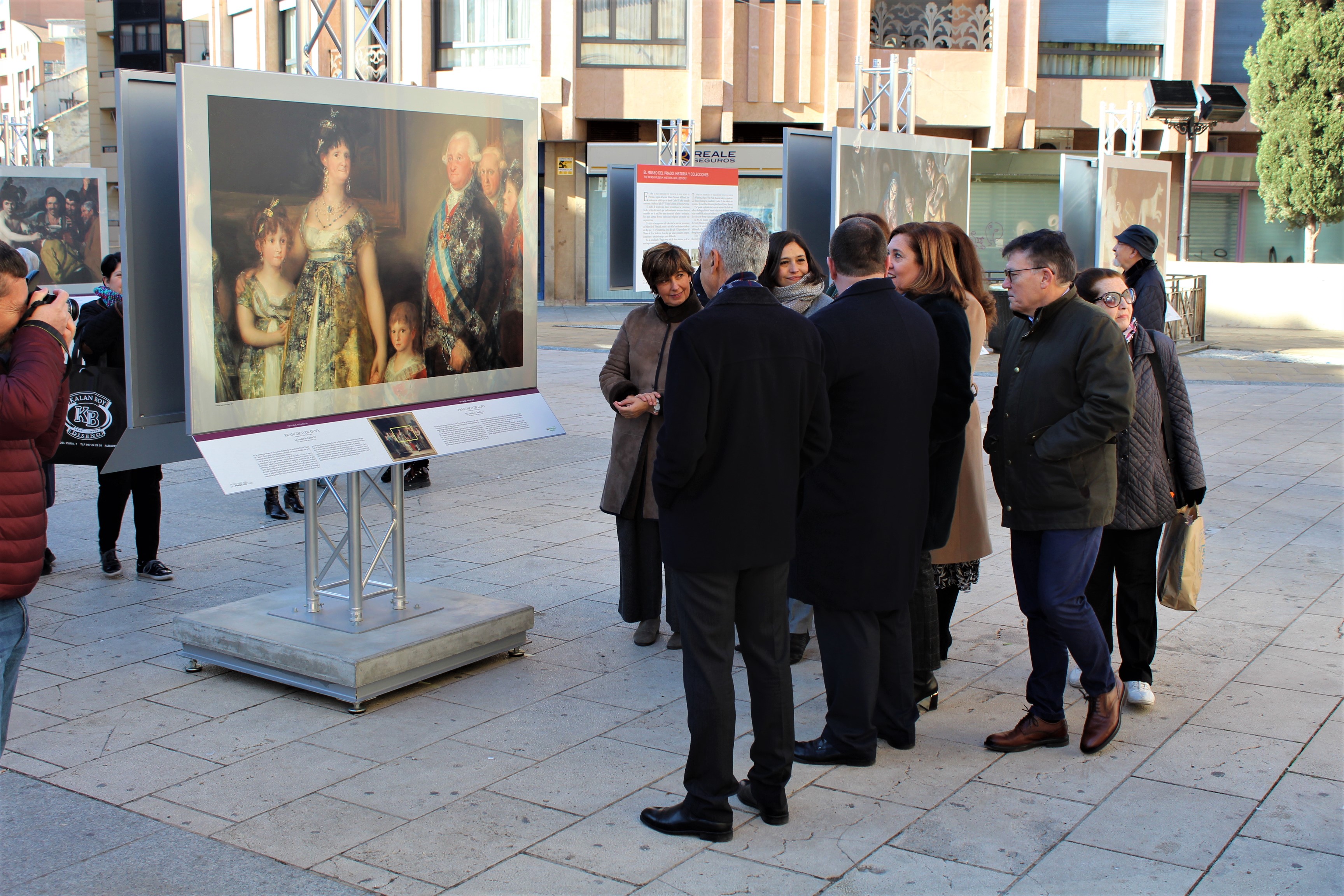Albacete is hosting an outdoor exhibition featuring photographic reproductions of fifty works from the Prado Museum’s collection
Sponsored by Fundación Iberdrola España and organised in partnership with Albacete City Council, this is an educational exhibition comprising fifty life-sized photographic reproductions of the Prado’s most iconic paintings. It is open to the public until 9 February, and located in the Plaza Virgen de los Llanos.
The project will continue its journey to Mérida, which will be its final destination.
Madrid, 13 January 2020
The aim of this project, entitled “The Prado Museum in the Streets” and sponsored by Fundación Iberdrola España, is to communicate a greater understanding of the Museum’s collections and the cultural identity of its historical heritage to a wider audience. It will encourage educational programmes and cultural outreach activities within the framework of the programme of events commemorating the institution’s bicentenary. It also aims to virtually recreate the experience of visiting the Museum by allowing visitors to contemplate the paintings in their life-sized dimensions, giving them an experience similar to that of being in front of the works of art themselves.
Due to run until 9 February, the exhibition (which was officially opened this morning by Vicente Casañ, Mayor of Albacete, Marina Chinchilla, Assistant Director of Administration at the Prado Museum, Fernando García, President of Fundación Iberdrola España, and Fernando Pérez Suescun, the exhibition’s curator) will provide the people of Albacete with the opportunity to see 50 of the most important works in the Madrid collection through life-sized photographic reproductions. These will be adjusted to fit the dimensions of the exhibition panels (184 x 122 cm) situated in the Plaza Virgen de los Llanos, one of the city’s most iconic locations.
This large, open-air exhibition, curated by Fernando Pérez Suescun, Head of Educational Content at the Prado Museum, will allow the visiting public to take a tour through the different artistic schools covered by the Prado’s permanent collections and learn about the history of Spain, Europe and Western art in general, as painted by the great masters. The Spanish, Italian, Flemish, French, German and Dutch schools will be represented through artists from the 12th century to the early 20th century.
The show also has bilingual information panels on each of the works, as well as bilingual panels with information on the history of the Museum and its collections.
The reproductions are shown at a scale of 1:1. Due to the dimensions of the exhibition stands, some of the larger works are represented by just a detail of one of their most impressive and memorable sections. However, the entire painting will be shown in the explanatory panel.
Building on the Prado’s educational and informational activities
This project will provide a new way for the public to get to know the Prado’s collections, which can also be seen on the Museum website www.museodelprado.es. The website has over 16,000 high-quality images and information sheets covering the collection, videos explaining the works, exhibitions and restorations, a wealth of interactive educational resources as well as access to the Digital Archive and the Online Encyclopaedia. This digital content is augmented by content on the educational platforms iTunesU and MiríadaX, active accounts on the main social media platforms such as Instagram, Twitter, Facebook and YouTube, as well as innovative apps such as Second Canvas Museo del Prado.
Fundación Iberdrola España is a Protector member of the Prado Museum
Fundación Iberdrola España has been working in partnership with the Prado Museum since 2010 through its support for conservation and restoration programmes undertaken by the art gallery, as well as through four annual scholarships for young art restorers. This year, Fundación Iberdrola also wanted to join the Extraordinary Programme to commemorate the museum’s bicentenary and, in particular, to support this travelling exhibition to which it is contributing around €200,000.
One of the foundation’s main areas of activity is cultural development, focused on the care and maintenance of cultural and artistic treasures.




